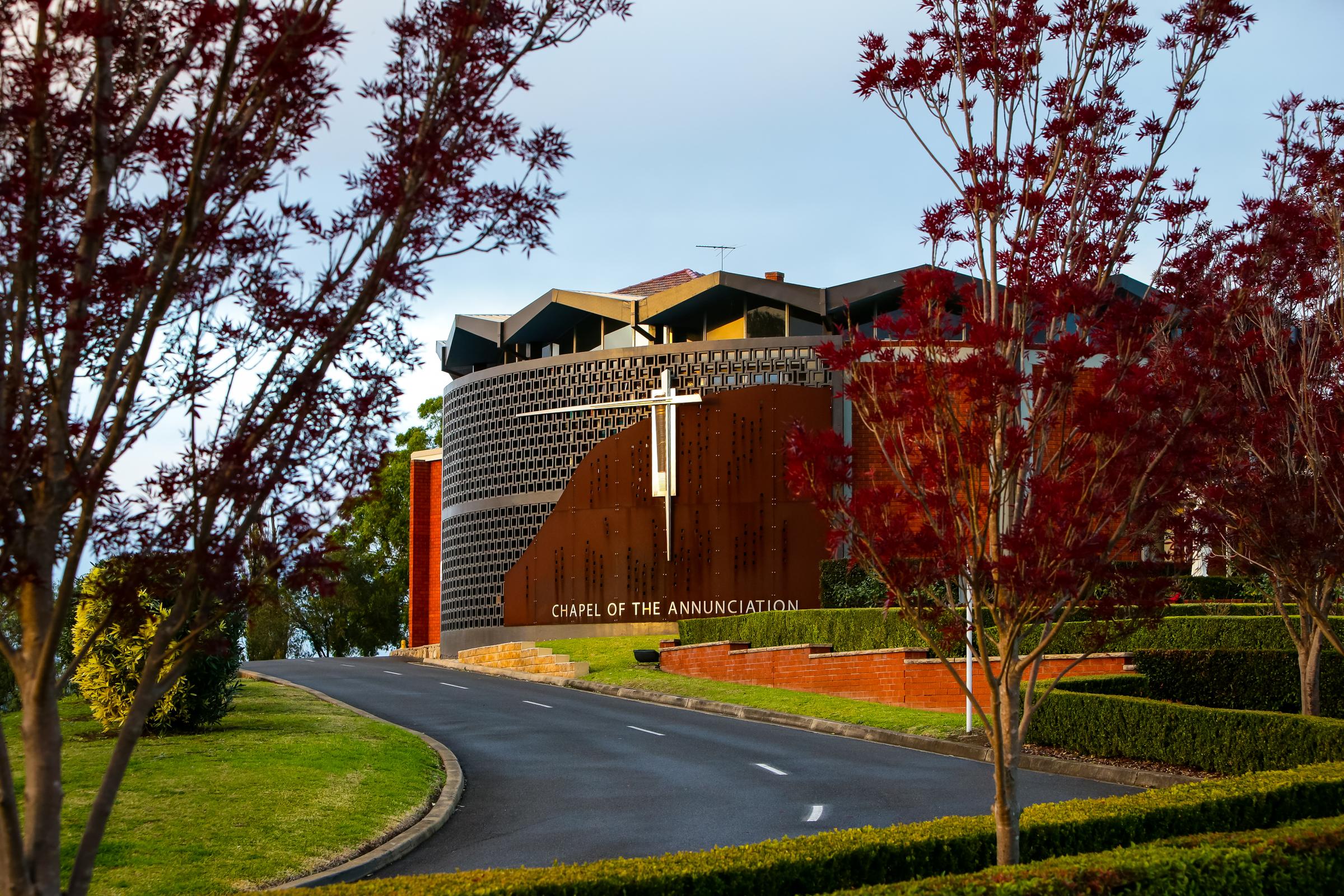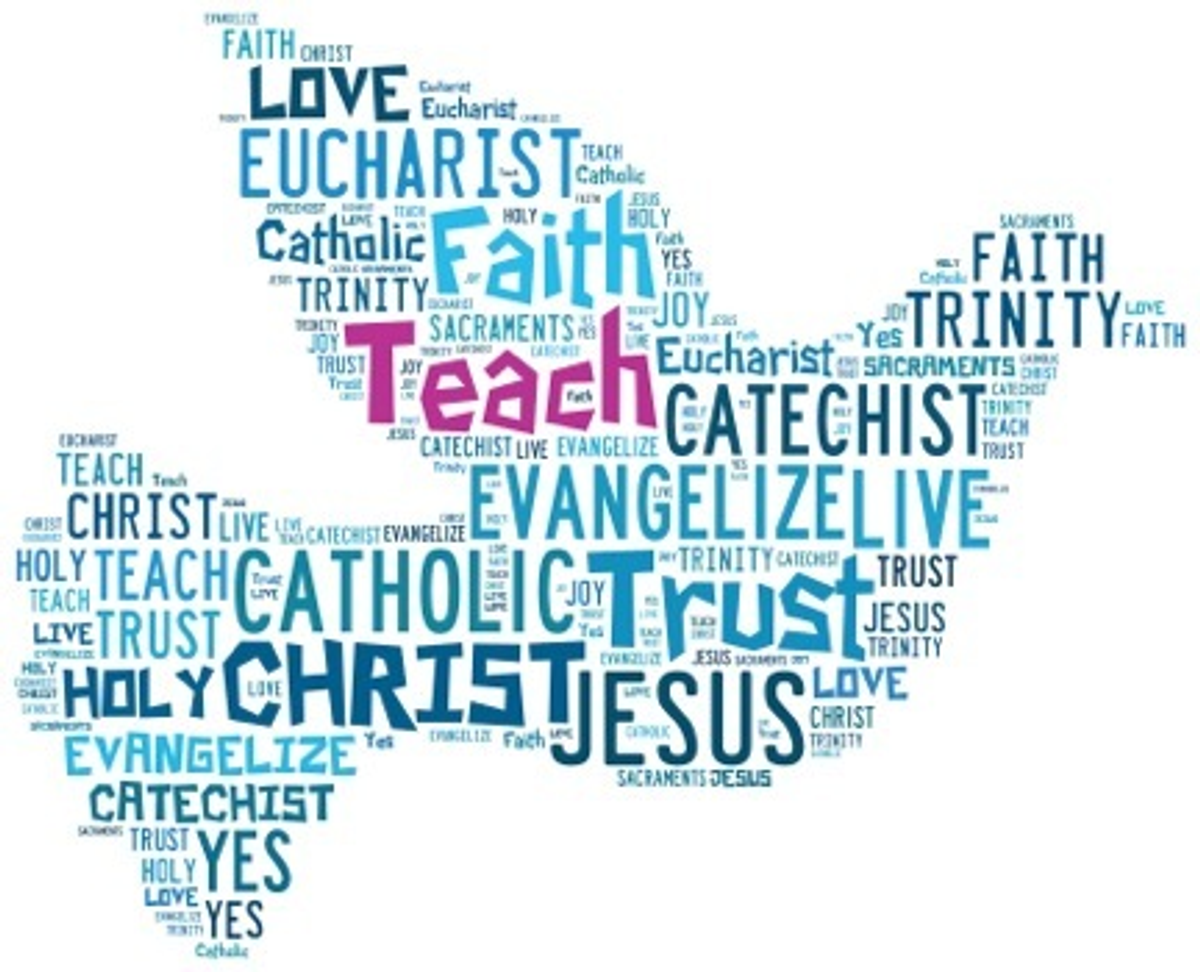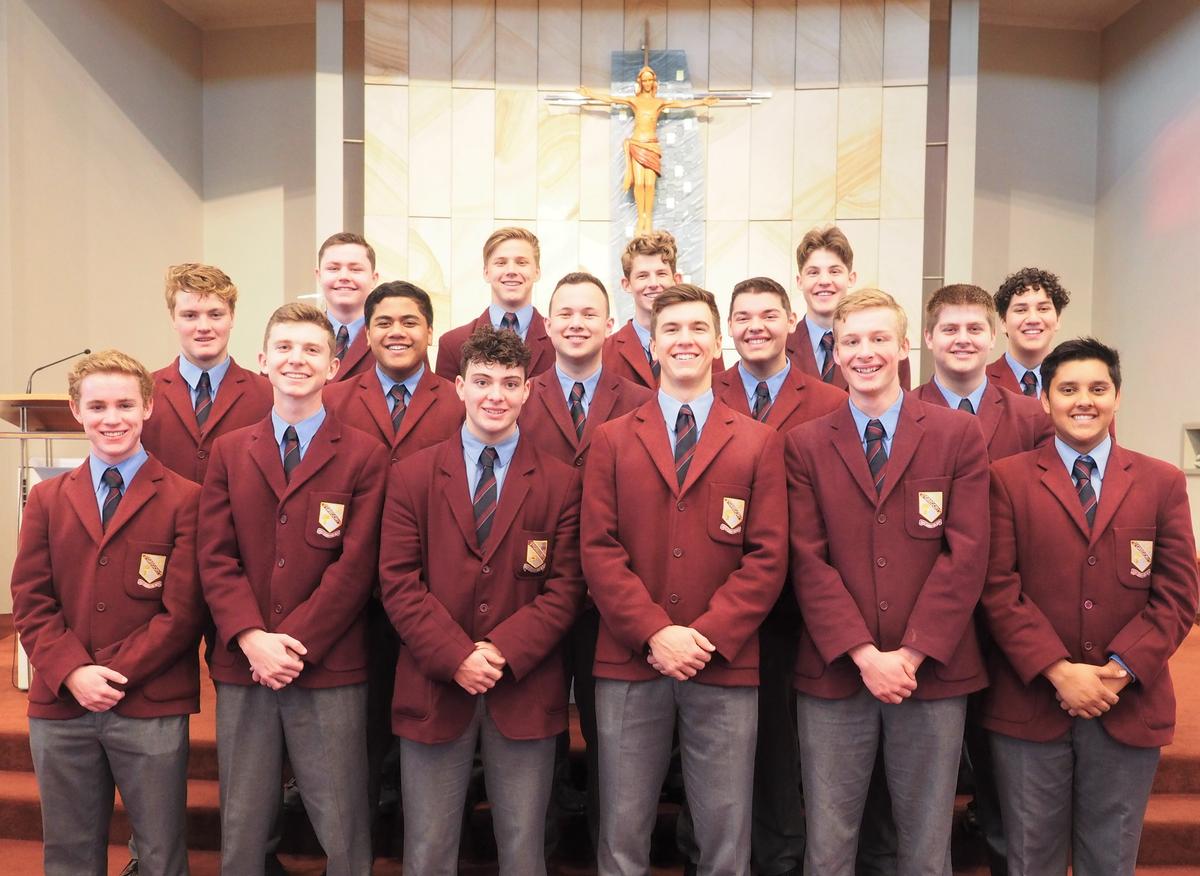From the College Principal
Mr Lee MacMaster

From the College Principal
Mr Lee MacMaster
Dear Parents, Carers, Students and Friends of the St Gregory’s College Community,
As we near the end of Term 3, it is good to look in the rear vision mirror and to acknowledge the commitment and dedication shown by our staff, students and families over the past eight weeks. As I say on a regular basis to the community at St Gregory’s College, we are living with the pandemic and with God’s grace and blessings we are currently being able to operate as normally as possible. Yes, we have had many cancellations of events, activities and sports this year, but at the heart of what we do daily, we have remained unaffected, and quality teaching and learning opportunities have been able to proceed.
Next week we begin the final ten days of the term – Year 11 students will be completing their End of Preliminary course exams; Year 12 will be concluding their courses of study and preparing for their HSC exams which will begin on Tuesday 20 October; Year 10 students will be finalising their Stage 6 course selections; Year 8 will be participating in their Stage 5 elective subject choices; Years 7 – 10 will be reaching the mid-point of their Semester 2 studies and preparing for their final examinations which will take place in late Term 4, and our wonderful Kindergarten to Year 6 students continue to grow in their learning under the watchful eyes of our talented Junior School staff. We are blessed to be members of this great community at St Gregory’s!
OUR CATHOLIC COLLEGE - Throughout Term 3, I have been challenging our College staff with conversations about the awesome responsibility we have as educators in a Catholic school. As staff members, we continue to explore our role as evangelists of the faith and as true disciples of Jesus. Recently a colleague from a previous school sent me a wonderful article to read which has greatly assisted me in consolidating my knowledge of how teachers in a Catholic school can and do respond to the challenges that are contained in these tasks and responsibilities. I provide some of the article below which I have edited for this Newsletter.
Nicholas King SJ is a tutor in Biblical Studies at Campion Hall, University of Oxford. In a talk delivered at Downside School on 12 March 2013, King said, “The task of Catholic educators today ... is to offer to learners the possibility of an encounter with Jesus Christ. As educators we need to create a space in which today’s young people can find the Jesus they are longing to meet.”
There is an unfortunate and growing temptation on all sides of the field of education to turn ‘learners’ into ‘customers’. A consequence of this is to see the task of Christian educators as just another job, whereas in fact it is an awesome responsibility, one which all of us (teachers, students and parents) involved in education would do well to think about.
The task of Catholic educators today, those who have been called to this ‘guidance of souls’ is quite different to that of their predecessors. We live now in a world where the Spirit is inviting us to a much greater openness in our religious education. The challenge today is not to offer the present set of learners that – in many ways very attractive – set of coherent and confidence-inducing beliefs that their direct ancestors received, but something different - it is to offer to them the possibility of an encounter with Jesus Christ.
So, what is the best way to go about this? I wish to suggest three things, and I suspect that many Catholic teachers are already doing all of them.
The first is: good liturgy. That is to say you have to find a ritual and solemn expression for the truths by which this community lives. This liturgy is to be judged not by its success in obeying all the rubrics laid down for the reverent conduct of a service, but by making possible the hearing of God’s Word and, again, the encounter with Jesus Christ.
The second is necessarily connected with the first. You have to ‘walk the talk’. The task of a Catholic educator is to preach the gospel, and to impart Jesus’s message of unconditional love.
The third is that you must expose them to the Word of God, especially the gospels, because they tell the story, and it is a good instinct in Christianity to express our deepest truths in narrative form.


Catholicism is the 2000-year-old tradition of attempting to live out the gospel. At different times in our history, different problems have surfaced in the course of that living out. Jesus is the one to whom young learners are aching to open up, whether they realise it or not. Jesus talks ‘human’ in an age where some in the Church seem to talk a language all of their own, which no one outside the bubble can comprehend. The Catholicism into which I grew up, and to which I am enormously grateful, seemed to radiate a certainty about absolutely everything. That certainty is no longer pastorally helpful, and we need to go back to the only certainties that matter: that there is a God and that God loves the world, and that God sent Jesus, whom we killed and whom God raised from the dead, so that after all love is victorious.
So, I want to suggest that the faithfulness of Catholic educators may consist less in giving learners secure answers than in encouraging them to ask the right questions. That seems to me to be in keeping with current educational theory, and such an approach seems to speak to our times, which so desperately need the truth that Catholicism offers.”
As you can see, as educators in a Catholic school we have an awesome responsibility to make Jesus known and loved. We can never back away from that responsibility and as such, I ask that you support the College in all that we do to make Jesus known and loved every day.
In 2017 I had the opportunity to study theology at Oxford University in England. Guess what, my lecturer for one of my courses was Father Nicholas King SJ. What an amazing experience!
WE NEED TO TEACH HOPE – Sadly, not all our students are hopeful. The impacts of the COVID-19 pandemic have severely impacted our student’s resilience and their capacity to be hope-filled. Hopeful students believe their future will be better than their present and think they have the power to shape a better future. As educators, we need to do a better job teaching young people how to hope because hopeful thinking combines future thinking with a sense of agency or efficacy. Studies have shown that a person’s positive expectations for the future are tightly correlated with academic and life success. Researchers have found that hope can boost a student’s school achievement by 12%.
Let’s look at a number of misconceptions: -
Then, how can we tell the difference between a wish and a hope? Hope starts an individual thinking about ways to make their life better and gets them moving in the right direction.
Students who are hopeful about the future have three characteristics that set them apart from students who are not:


How can parents and teachers work closely together to ensure we are filling our young people with hope. Here are a few suggestions: -


R U OK? WEEK – R U OK? week has been an important time to reflect on our own attitudes to mental health, and to help our students do the same. Sometimes all it takes is asking one simple question: R U OK? In 2020, the issue of mental health is high on the agenda for all schools and families around the country. With a global pandemic adding a large dose of extra anxiety into the lives of our students and staff alike, talking about our emotions and asking R U OK? is more vital than ever before.
With more families living, working and learning from home, there’s no denying that the first half of this year has been a struggle for many Australians of all ages.
I congratulate our College for acknowledging this important week and thank both the staff and students for adding to our positive education initiative across the College campus.
DISTURBING SOCIAL MEDIA INCIDENT – Earlier this week, the College made all parents and carers aware of some extremely disturbing and distressing footage which was appearing on Facebook, Twitter, Instagram and Tik Tok. The footage was extremely graphic. This information was passed on to you as parents and carers of our young people for your information and for any action that you deem appropriate and necessary with your sons and/or daughters.
With the attention around social media this week it is timely that parents and carers have discussions with your children about the harmful potential and risks that social media can play in all our lives. Not only is social media a poor substitute for actual interactions, social media provides a distorted view of relationships, self-perception and values.
CONGRATULATIONS – As a community, we congratulate our Year 11 students who last week at the St Gregory’s Feast Day Mass were inducted as our new student leaders for Term 4 – 2020 and 2021. Congratulations to Lachlan McInerney (College Captain) and his team for the honour of leading the College over the next twelve months. A full list of our new student leaders appears in the Director of Mission section of this Newsletter.




I also congratulate our College Counsellor, Mr Thomas (Tom) Greally on being named as the 2020 Community Champagnat Award recipient at the Mass. Tom is an outstanding staff member and a very worthy recipient of this prestigious award.
YEAR 12 GRADUATION EVENTS – Only ten school days remain for Year 12 until they complete their courses and head off for the holidays (study vacation) and then return in Term 4 to commence their Higher School Certificate exams from Tuesday 20 October until Wednesday 11 November.
Unfortunately, this year due to the COVID-19 restrictions, our normal Year 12 Graduation events on the final day of Term 3 have had to be cut back this year. Nevertheless, we will celebrate in great St Gregory’s style and ensure our Year 12 students have a wonderful send off on the day. We will commence the day with a Years 7 – 12 assembly/line up on the Top Quad. Morning tea will follow for the Year 12 students and Year 12 staff members in the Marian Centre. Finally, a Year 12 Final Assembly and Prizegiving will take place in the Brother Luke Hall before the students are farewelled by the College community. Unfortunately, no parents or guests are able to attend on this day due to the restrictions in place.
This year we will invite the students and their parents back to the College on the evening of Friday 20 November (following their HSC examinations) for an outdoor Graduation Mass and a Graduation Dinner to follow the Mass in the Brother Luke Hall.
Certainly, a change from previous years, but this represents a great opportunity to try something new and to still farewell the students and their families in true St Gregory’s College style!
YEAR 11 END OF PRELIMINARY COURSE EXAMINATIONS – Our Year 11 students have now completed their Preliminary courses of study and on Monday 14 September commence their end of course examinations, up until Thursday 24 September. I take this opportunity to wish them every success in their exams, to thank them for their commitment to their studies, and to thank our staff for preparing our young men so well for this exam period.
Please note that all Year 11 students are expected to be in attendance at the College on Friday 25 September – the final day of term following their end of course exams. Please do not let Year 12 down by not attending and joining in the farewell for Year 12.
END OF TERM 3 REMINDER - A reminder that all classes conclude in Term 3 on Friday 25 September at 3.05pm for our Kindergarten – Year 11 students. All students are expected to attend classes until the end of Term 2. We all need to finish each term strongly and work in a sustained fashion until the last period of the final day of term. I request that parents/carers wishing for their son/daughter to finish the term prior to Friday 25 September write to me to in advance to request leave for your child.
Finally, thank you again for your ongoing support, encouragement, friendship and wise counsel. The support you provide assists me greatly.
I wish you God’s blessings always. May Mary, our Good Mother, Saint Marcellin Champagnat and Saint Gregory continue to guide us and inspire us on our journey.
Lee MacMaster
College Principal (K-12)